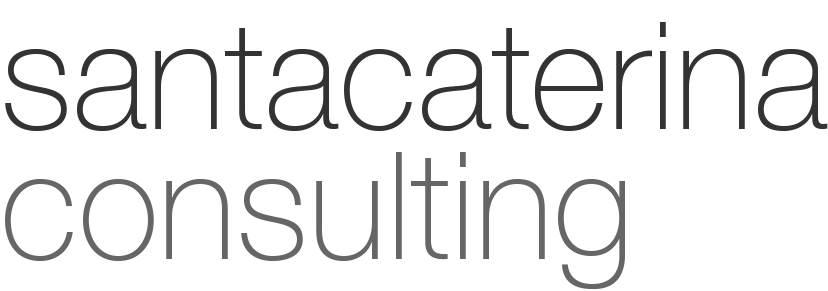It's time to re-consider your growth potential post pandemic ...
Aren’t you forgetting the most fundamental equation in business?
Investment (ROI) + Organic Growth = Cash Flow = Lasting Value for Current and Future Stakeholders, all of whom are your customers
Many businesses are yet to emerge fully from the havoc wrought by unprecedented externalities triggered by the global pandemic, which has caught most unaware and found many woefully ill-prepared.
And yet digital transformation efforts have accelerated as a matter of extreme urgency, in a situation where “needs must” left leaders with very little choice.
It was quite literally a case of adapt or die.
For the first time in recent decades, productivity rose significantly, as remote working enabled by digital technologies became an absolute necessity. Virtual meetings conducted relentlessly online, blurred the lines between our private and professional lives and eliminated time lost commuting to office buildings.
However, whilst efficiencies are still being sought through increased digitalisation and headcount reduction, it would seem few businesses have been able to re-calibrate their efforts and shift their focus towards more productive investments, organic growth and long term value creation.
Since demand has not bounced back evenly across geographic areas, supply chains have not fully recovered. Across many industry sectors, cash flow is still a concern, particularly as not all businesses have access to extraordinary finance, despite substantial state interventions to keep most businesses afloat.
We are seemingly still in a climate of “quick wins,” whereas the extensiveness and gravity of both the demand and supply-side shocks we are experiencing, dictates otherwise.
Moreover, the pandemic shows no signs of fully abating, as mutations of the virus continue to emerge, and are transmitted at ever increasing rates across the globe. Governments are struggling to get the virus under control and citizens are finding it difficult to continue living with the restrictions.
Whether in communities or through porous borders, thus far the Covid19 virus has rendered restrictive measures on civil liberties imposed by law in many countries, somewhat uneven in terms of their effectiveness.
It is also difficult to say exactly when we will be freed from the clutches of such an unprecedented global pandemic, never before experienced in our lifetime.
There are profound changes occurring in society. Just as many workers would now prefer to work from home, so too consumers have radically altered their spending habits, behaviours and preferences.
In the retail sector for instance, businesses have experienced a dramatic fall in demand, as loyalty is fast evaporating and consumers switch brands with increasing ease. In some cases, businesses have faced additional complications in the supply-chain, owing to geo-political entanglements, which can but destroy a reputation that has taken decades or even a century to construct.
It is hardly surprising that in such turbulent times, not every business has been able to continue with planned investments. Especially since a return to the norm (for most this means aiming at 2019 levels of revenue) is not foreseen for at least 2-3 years; arguably until the global population is mostly vaccinated.
However, the more resilient businesses have in fact quickly adapted to virtual working arrangements. They have also addressed the new challenges presented with social distancing for essential office based staff, putting in place extra health and safety measures.
Nearly all businesses have dramatically improved their digital communication platforms and added additional layers of security to enable remote working. More than likely this will feature as a permanent or semi-permanent structural change within their organisations.
Re-invigorated by demand returning in some geographical areas (notably China and the USA, much less in Europe), they are now beginning to believe they can survive and are soldiering on. But, remarkably few business leaders feel they have escaped compromising the future of their businesses and their people.
However, if the economy is to recover its strength, enterprises cannot fail to observe the most fundamental equation in business, both for survival and longevity:
Investment (ROI) + Organic Growth = Cash Flow = Lasting Value for Current and Future Stakeholders, all of whom are your customers.
Hence why it is now a business imperative to go back to the fundamentals: productive investments to foster organic growth and timely innovation. Coupled with strong business ethics needed to regain trust, where it has been eroded. Building anew the support of loyal customers and restoring confidence.
Pressure from investors and consumers alike will continue to increase particularly for the larger corporations to take the lead, both in terms of the quality and the direction of growth. Further demands will be made for increased transparency, especially in relation to the 17 Sustainable Development Goals, established by the United Nations.
Without a more purposeful approach to business, and a systematic nurturing of your core business values, to engineer organic growth, it is really difficult to see how a business might sustain itself and extend its lifespan.
Yes, there are many challenges and extra layers of complexity facing business leaders, particularly in today’s world of technological disruption, given the unprecedented speed of change. However, this is also a unique opportunity to re-build our social capital, by focusing on what will make a real difference to people’s lives.
The dual challenge of restoring human health and biodiversity to protect the evolution of our species and our planet, also affords us the greatest opportunity for growth. It is simply the case that the definition of growth needs to be re-qualified, such that non-monetary values are also be included in its measurement.
Little or no action, or worse still imagining that we might return to the norm, the “status quo,” would simply be a much swifter route to extinction.
We should instead be actively pursuing effective processes, with sufficient flexibility to take the digital transformation process to the next level; and thereby allow room for organic growth and productive investments, with sustainability being embedded into core business strategy and daily activities.
Technology can be used for the greater good. Data can be used in an ethical and responsible manner, to lower costs and the time needed for purposeful innovations to reach new markets and benefit consumers.
With new thinking we can achieve sustainable growth and prosperity for all. Placing a greater emphasis on human values will also result in higher profits, naturally.
An over-reliance on financial performance denies the opportunity for novel ideas to surface; and it is precisely the new ideas, which may quite simply give your organisation a new lease of life.
Of course, risk should be measured, rules applied and regulations adhered to; but, risk aversion means there is no opportunity for real growth. As investment will not be channelled into more productive areas, including undervalued human capital, resulting in a significant skills gap, which will hinder economic recovery.
Notwithstanding the challenges of present realities, we need to be more creative than ever; we still need to explore the unknown and discover new sources of value. In economic terms it will help to preserve the long-term future of the enterprise. As the operating system within society, it will foster human progress.
In this instance, failure is simply not an option.
Leveraging the competitive advantage presented by the data we now possess, a more purposeful use of technology ought to yield far better results and foster human progress.
One point should be clear, as a result of the pandemic, if it was not clear before, how important each and every person in the organisation and their contribution to the success of the whole actually is. Take for instance the pride expressed by the cleaner on the 10 o’clock news, cleaning floors at an NHS hospital:
“I am doing my part to help keep people safe.”
So, what if, we used our collective efforts to build a more sustainable digital future, focusing on real economic growth. What if we began with long-term value creation, as a starting point and set this as the higher purpose when reviewing core business strategy?
Short term gains (e.g. EPS) are precisely that, short term. Financial returns alone do not guarantee long term value. There needs to be a more substantial form of growth underpinning short term performance.
Isn’t it time to broaden our perspectives, go beyond the assumptions underlying economic theory, to fully embrace the challenges before us?
Diverse thinking, a renewed entrepreneurial vigour, much broader co-operation across the ecosystem is urgently needed. A multidisciplinary approach to foster much deeper collaboration across the different functions of the enterprise.
The enterprise cannot exist in a vacuum. It must instead gain its legitimacy from a broad consensus within society as a whole. It must also cultivate and nurture this relationship and recognise its obligations fully. In helping to re-build our prosperity, it is now in the spotlight and centre stage.
Organic revenue growth is a positive dynamic, and always delivers value. It lends itself to a virtuous cycle comprising innovation along with productive investments. This in turn helps to build an adaptive resilience at the core of the enterprise. In effect, it carries the enterprise forward and it extends its lifespan.
By responding fast to the changes now occurring, the enterprise can more easily adapt to new realities, whether in existing or new markets. The pursuit of organic growth leads to lasting value creation. This means new jobs, better lives and more prosperity for society, as a whole.
Surely, this is fundamentally a principle leaders can no longer ignore.

